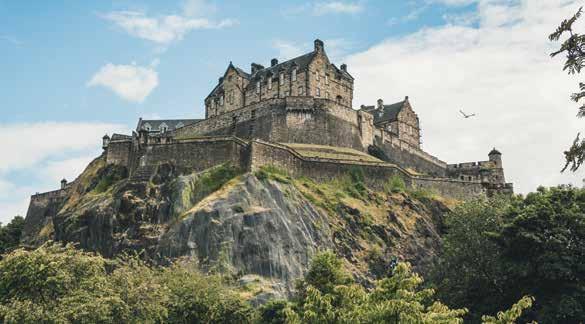History By Catherine Rose
Edinburgh
The History of Place Names The origin of our village and town names can provide a fascinating insight into their history. Did you know that the study of place names is called toponomastics? Generally, places have earned their names from the people that founded the settlement, the surrounding landscape, or the flora and fauna that have featured there. Over time, with the evolution of language and through local dialects, place names have changed throughout generations, sometimes becoming quite different versions of what they were hundreds of years ago.
Castle Combe
4
The UK has had a varied history, having been home to many conquering invaders and numerous tribes. Consequently, our modern place names have been contributed to by the Celts, the Anglo-Saxons, the Vikings and even the French. We often think of the Romans as having founded our major cities but their Latin names were either based on the existing Old English ones or were so radically different that their use hasn’t survived (for example, the Roman Verulamium for what is now St Albans). Many people think the word ‘chester’ is Roman but in fact its roots are Celtic. Manchester is derived from the Celtic words mamm meaning ‘a breastshaped hill’ and ceaster – ‘a fortified city’. Most of our current city, town and village names were given to them by our most ancient ancestors. Tre in a place name denotes a homestead or hamlet and was usually paired with the name of the person who owned it, so Tregare in Wales means ‘Gare’s home’. Perhaps unsurprisingly, given their proximity across the Bristol Channel, this prefix is seen even more widely in Cornwall. Another common Cornish prefix is penn which is a ‘headland’. Penzance is a conjugation of penn and sans which together mean ‘holy headland’. Like tre, a town or village name ending in by is Old Norse for ‘homestead’. The Vikings are also responsible for place names that begin or end with
Please mention The Villager and Town Life when responding to adverts

























